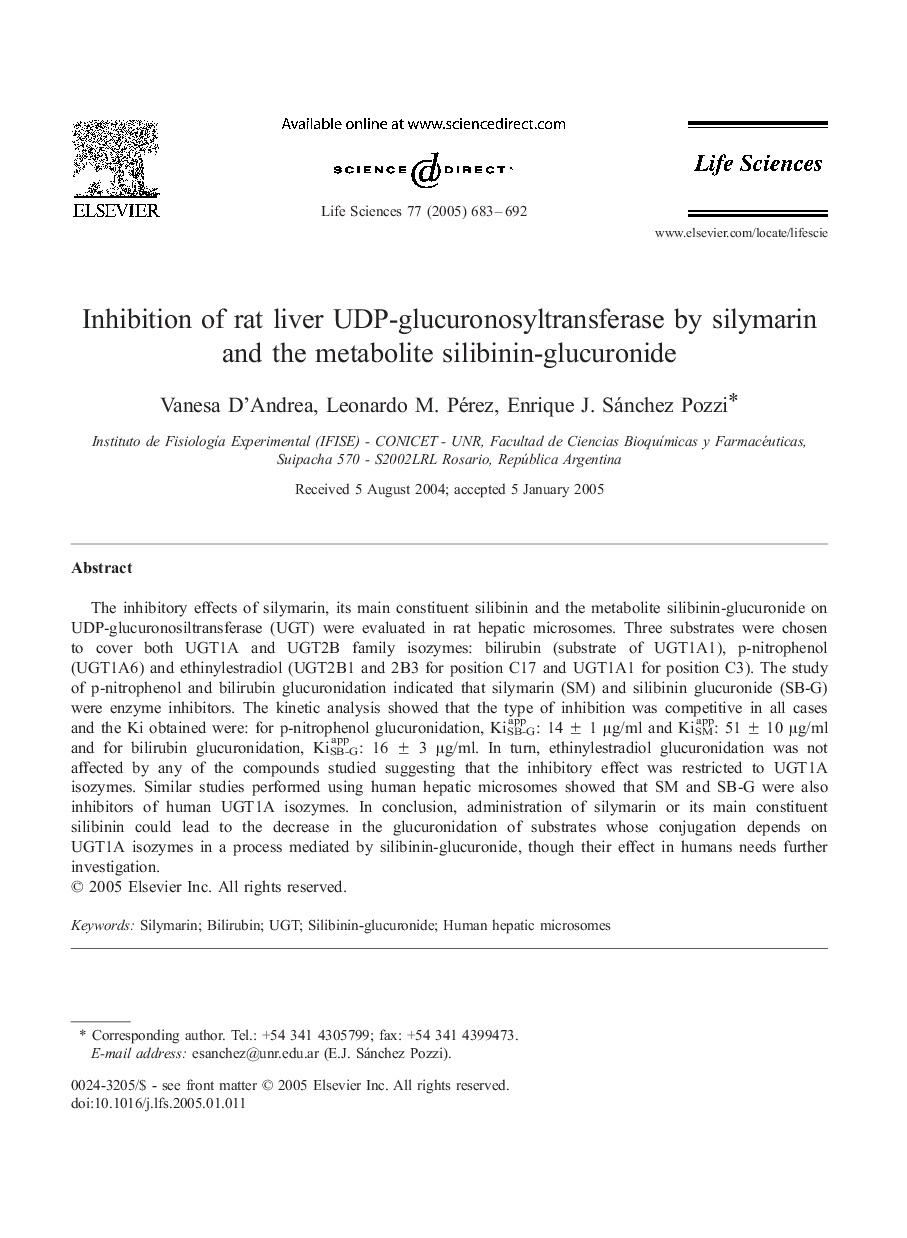| Article ID | Journal | Published Year | Pages | File Type |
|---|---|---|---|---|
| 9012776 | Life Sciences | 2005 | 10 Pages |
Abstract
The inhibitory effects of silymarin, its main constituent silibinin and the metabolite silibinin-glucuronide on UDP-glucuronosiltransferase (UGT) were evaluated in rat hepatic microsomes. Three substrates were chosen to cover both UGT1A and UGT2B family isozymes: bilirubin (substrate of UGT1A1), p-nitrophenol (UGT1A6) and ethinylestradiol (UGT2B1 and 2B3 for position C17 and UGT1A1 for position C3). The study of p-nitrophenol and bilirubin glucuronidation indicated that silymarin (SM) and silibinin glucuronide (SB-G) were enzyme inhibitors. The kinetic analysis showed that the type of inhibition was competitive in all cases and the Ki obtained were: for p-nitrophenol glucuronidation, KiSB-Gapp: 14 ± 1 μg/ml and KiSMapp: 51 ± 10 μg/ml and for bilirubin glucuronidation, KiSB-Gapp: 16 ± 3 μg/ml. In turn, ethinylestradiol glucuronidation was not affected by any of the compounds studied suggesting that the inhibitory effect was restricted to UGT1A isozymes. Similar studies performed using human hepatic microsomes showed that SM and SB-G were also inhibitors of human UGT1A isozymes. In conclusion, administration of silymarin or its main constituent silibinin could lead to the decrease in the glucuronidation of substrates whose conjugation depends on UGT1A isozymes in a process mediated by silibinin-glucuronide, though their effect in humans needs further investigation.
Related Topics
Health Sciences
Medicine and Dentistry
Cardiology and Cardiovascular Medicine
Authors
Vanesa D'Andrea, Leonardo M. Pérez, Enrique J. Sánchez Pozzi,
